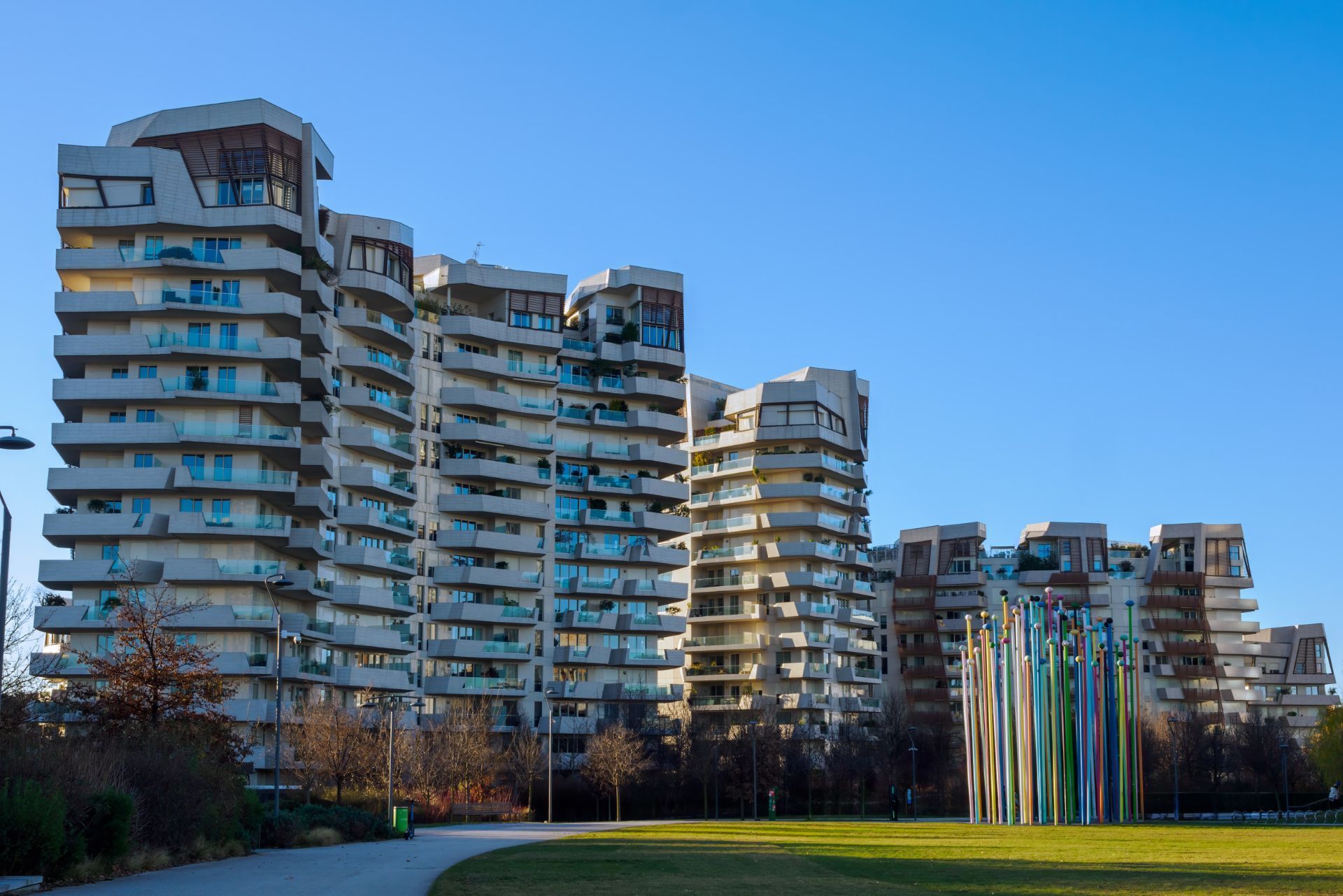
Top 3 Recommended Policies
Owning or managing an apartment complex in Connecticut comes with a unique set of challenges and responsibilities. One of the most critical aspects of protecting your investment and ensuring business continuity is securing the right insurance coverage. Apartment complex insurance in Connecticut is designed to shield property owners from financial losses due to property damage, liability claims, and other unforeseen events.
This comprehensive guide will walk you through everything you need to know about Connecticut apartment complex insurance, including types of coverage, state-specific considerations, risk factors, and tips for choosing the best policy for your property.
Understanding Apartment Complex Insurance
Apartment complex insurance is a specialized form of commercial property insurance tailored for multi-unit residential buildings. Unlike standard homeowner’s insurance, which covers single-family homes, apartment complex insurance addresses the unique risks associated with rental properties housing multiple tenants.
In Connecticut, where weather patterns and local regulations can impact property management, having the right insurance coverage is essential to mitigate risks and protect your financial interests. The diverse demographic of tenants in Connecticut also adds a layer of complexity, as different tenant needs and behaviors can influence the types of risks that property owners face. From families to college students, understanding the tenant profile can help in assessing the necessary coverage.
What Does Apartment Complex Insurance Cover?
Typically, apartment complex insurance policies include several key coverage components:
- Property Insurance: Covers damage to the building structure, including walls, roofs, and common areas, caused by fire, storms, vandalism, or other covered perils.
- Liability Insurance: Protects against claims arising from injuries or property damage sustained by tenants or visitors on your property.
- Loss of Income: Also known as business interruption insurance, this covers lost rental income if the property becomes uninhabitable due to a covered event.
- Equipment Breakdown: Covers repair or replacement costs for essential building systems like HVAC, elevators, and boilers.
- Optional Coverages: Flood insurance, earthquake insurance, and cyber liability coverage may be added depending on location and specific risks.
Why Is Apartment Complex Insurance Important in Connecticut?
Connecticut’s climate and regulatory environment make apartment complex insurance particularly vital. The state experiences a mix of weather hazards including nor’easters, hurricanes, and winter storms, which can cause significant property damage. Additionally, Connecticut has strict landlord-tenant laws and building codes that can influence liability risks.
Without adequate insurance, apartment owners could face substantial out-of-pocket expenses for repairs, legal fees, or lost income. Insurance provides a safety net that helps maintain financial stability and protects your investment. Furthermore, having comprehensive coverage can enhance your reputation as a responsible landlord, potentially attracting higher-quality tenants who value safety and security. This can lead to lower vacancy rates and a more stable rental income, making it a sound financial decision in the long run.
Moreover, understanding the nuances of apartment complex insurance can empower property owners to make informed decisions about risk management. Regularly reviewing and updating your policy to reflect changes in property value, tenant demographics, and local regulations can ensure that you remain adequately protected. Engaging with an insurance professional who specializes in commercial property can also provide insights into emerging risks and innovative coverage options that may be beneficial for your specific situation.

Key Insurance Requirements for Connecticut Apartment Complexes
While Connecticut does not mandate apartment complex insurance by law, lenders and investors typically require property owners to carry comprehensive coverage. Understanding the state’s legal landscape and insurance requirements can help you stay compliant and avoid costly pitfalls.
Connecticut Landlord-Tenant Laws and Insurance Implications
Connecticut’s landlord-tenant laws emphasize the landlord’s responsibility to maintain safe and habitable rental properties. Failure to comply can result in legal claims and liability exposure. Insurance policies often cover such liability, but landlords must ensure their coverage aligns with these legal obligations.
For example, if a tenant is injured due to a maintenance issue, liability insurance can cover medical expenses and legal defense costs. However, insurance will not cover intentional negligence, so proactive property maintenance remains essential. Regularly scheduled maintenance checks can help identify potential hazards before they lead to accidents, thus safeguarding both tenants and the property owner from unforeseen liabilities. Additionally, keeping thorough documentation of maintenance activities can serve as evidence of compliance with legal obligations, which may be beneficial in the event of a dispute.
Mortgage and Lender Insurance Requirements
Most lenders financing apartment complexes in Connecticut require borrowers to maintain adequate insurance coverage throughout the loan term. This typically includes property insurance covering the building’s replacement cost and liability coverage.
Failure to maintain insurance can lead to lender-imposed force-placed insurance, which is often more expensive and less comprehensive. Therefore, it is crucial to review lender requirements carefully and provide proof of insurance as needed. Moreover, understanding the nuances of each lender's requirements can enable property owners to negotiate better terms or seek alternative financing options that may offer more favorable insurance stipulations. Engaging with an insurance broker who specializes in commercial properties can provide valuable insights into the best coverage options tailored to meet both lender and property needs.
Additional Local Regulations and Building Codes
Connecticut municipalities may have specific building codes and safety regulations affecting apartment complexes. Insurance carriers often require compliance with these codes to approve coverage or avoid policy exclusions.
For instance, older buildings may need upgrades to electrical or fire safety systems to qualify for certain insurance discounts or coverage. Regular inspections and adherence to local codes can reduce risk and insurance premiums. Furthermore, staying informed about changes in local regulations is crucial, as municipalities may introduce new safety measures or zoning laws that impact insurance requirements. Engaging with local property management associations can provide valuable networking opportunities and resources for staying updated on these evolving regulations, ensuring that property owners not only remain compliant but also enhance the overall safety and appeal of their complexes.
Assessing Risks Specific to Connecticut Apartment Complexes
Every apartment complex faces unique risks based on location, building age, tenant demographics, and environmental factors. Understanding these risks is key to selecting appropriate insurance coverage and limits.
Weather-Related Risks
Connecticut’s location along the Atlantic coast exposes apartment complexes to various weather hazards:
- Hurricanes and Tropical Storms: These can cause wind damage, flooding, and power outages. While standard property insurance covers wind damage, flood damage typically requires a separate flood insurance policy through the National Flood Insurance Program (NFIP).
- Winter Storms: Heavy snow, ice, and freezing temperatures can damage roofs, pipes, and heating systems. Equipment breakdown coverage can help mitigate these risks.
- Nor’easters: These intense storms can bring high winds and coastal flooding, impacting properties near the shoreline.
In addition to these significant weather events, Connecticut also experiences seasonal changes that can lead to other risks. For instance, the spring thaw can cause rapid snowmelt, leading to potential flooding in low-lying areas. Furthermore, the state’s varied climate means that apartment complexes must be prepared for a range of conditions, from humid summers that may encourage mold growth to chilly autumns that can lead to heating system failures. Regular maintenance and seasonal inspections can help identify vulnerabilities before they escalate into costly claims.
Liability Risks
Apartment complexes face liability risks related to tenant injuries, property damage, and disputes. Common scenarios include slip-and-fall accidents in common areas, dog bites, and tenant altercations.
Liability insurance protects property owners from costly lawsuits and settlements, but maintaining a safe environment and clear tenant policies is equally important to reduce claims. Regular safety audits, proper lighting in parking lots and hallways, and prompt attention to maintenance requests can significantly lower the risk of accidents. Additionally, providing tenants with clear guidelines on the use of shared spaces and amenities can help foster a safer community atmosphere.
Tenant-Related Risks
Tenant behavior can also impact insurance risks. For example, unauthorized alterations, improper use of appliances, or failure to report maintenance issues can increase the likelihood of damage or liability claims.
Screening tenants carefully and establishing clear lease agreements can help mitigate these risks and support insurance claims if incidents occur. Moreover, fostering open communication with tenants can encourage them to report issues promptly, which can prevent minor problems from escalating into major liabilities. Offering educational resources on safety and maintenance best practices can also empower tenants to take responsibility for their living environment, ultimately benefiting both the property owners and the residents.
Choosing the Right Apartment Complex Insurance Policy
Selecting the best insurance policy for your Connecticut apartment complex requires careful consideration of coverage options, limits, deductibles, and insurer reputation.
Evaluating Coverage Options
Start by assessing the specific needs of your property. Consider the following:
- Building Value and Replacement Cost: Ensure your policy covers the full replacement cost of the structure, not just market value.
- Personal Property Coverage: If you own appliances, furniture, or equipment within the complex, include coverage for these items.
- Liability Limits: Higher liability limits offer greater protection against lawsuits but come with higher premiums.
- Optional Endorsements: Add flood insurance, equipment breakdown, or terrorism coverage based on your risk profile.
In addition to these fundamental aspects, consider the unique characteristics of your apartment complex. For instance, if your property is located in an area prone to natural disasters, such as hurricanes or heavy snow, additional coverage for wind or snow damage might be prudent. Furthermore, if your complex has amenities like a pool or gym, you may want to look into specific liability coverage for those areas, as they can present additional risks.
Comparing Insurance Providers
Not all insurance companies offer the same level of service or expertise in apartment complex insurance. Look for insurers with strong financial ratings, positive customer reviews, and experience in Connecticut’s real estate market.
Working with an insurance broker specializing in commercial real estate can help you navigate options and negotiate favorable terms. A knowledgeable broker can also provide insights into the claims process and assist in understanding the nuances of various policies, ensuring that you select the best coverage for your specific situation. Additionally, consider reaching out to other property owners in your area for recommendations, as their experiences can provide valuable context and help you avoid potential pitfalls.
Understanding Deductibles and Premiums
Higher deductibles generally lower your premium but increase out-of-pocket costs when filing a claim. Balance your deductible choice with your financial ability to cover unexpected expenses.
Additionally, insurers may offer discounts for risk mitigation measures such as sprinkler systems, security cameras, and regular property inspections. Implementing these safety features not only enhances the security of your property but can also lead to significant savings on your insurance premiums. Moreover, maintaining a good relationship with your insurer by regularly updating them on any improvements or changes to your property can further help in securing better rates and coverage options.

Tips for Managing Your Apartment Complex Insurance Effectively
Once you have secured insurance coverage, ongoing management is essential to maintain protection and control costs.
Regularly Review and Update Your Policy
Property values, tenant profiles, and risk factors can change over time. Conduct an annual review of your insurance policy to ensure it still meets your needs and adjust coverage as necessary. Additionally, consider any renovations or upgrades that could affect your property’s value. For example, if you’ve added new amenities like a swimming pool or fitness center, you may need to increase your coverage to reflect these enhancements. Keeping abreast of local real estate trends can also inform your policy adjustments, ensuring that you’re not underinsured in a rapidly appreciating market.
Implement Risk Management Practices
Proactively managing risks can reduce insurance claims and premiums. This includes:
- Routine maintenance and safety inspections
- Installing smoke detectors, fire extinguishers, and security systems
- Providing tenant education on safety and property care
- Maintaining clear records of repairs, incidents, and communications
Moreover, consider conducting regular training sessions for your staff on emergency preparedness and response protocols. This not only helps in mitigating risks but also fosters a culture of safety within your apartment community. Engaging with tenants through newsletters or community meetings to discuss safety tips and updates can enhance their awareness and encourage them to take an active role in maintaining a secure living environment.
Work with Experienced Insurance Professionals
Partnering with knowledgeable insurance agents or brokers familiar with Connecticut’s apartment complex market can provide valuable guidance and advocacy during claims. These professionals can help you navigate the complexities of insurance policies, ensuring that you understand the nuances of coverage options available to you. Furthermore, they can assist in identifying potential gaps in coverage that may arise from changes in legislation or market conditions, allowing you to stay ahead of potential risks. Building a strong relationship with your insurance provider can also facilitate smoother claims processes, as they will be more familiar with your property and its unique needs.
Conclusion
Apartment complex insurance in Connecticut is a vital component of property management that protects owners from financial loss due to property damage, liability claims, and other risks. Understanding the specific coverage options, state regulations, and local risk factors empowers property owners to make informed decisions and secure comprehensive protection.
By carefully assessing your property’s needs, selecting the right insurer, and implementing effective risk management strategies, you can safeguard your investment and ensure the long-term success of your apartment complex.
For apartment owners and managers in Connecticut, investing time and resources into the right insurance coverage is not just a legal or financial necessity—it’s a cornerstone of responsible property stewardship.
Contact Us
Phone
Locations
Connecticut Location
703 Hebron Ave., 3rd Floor, Glastonbury, CT 06033
North Carolina Location
436 East 36th St., Charlotte, NC 28205


